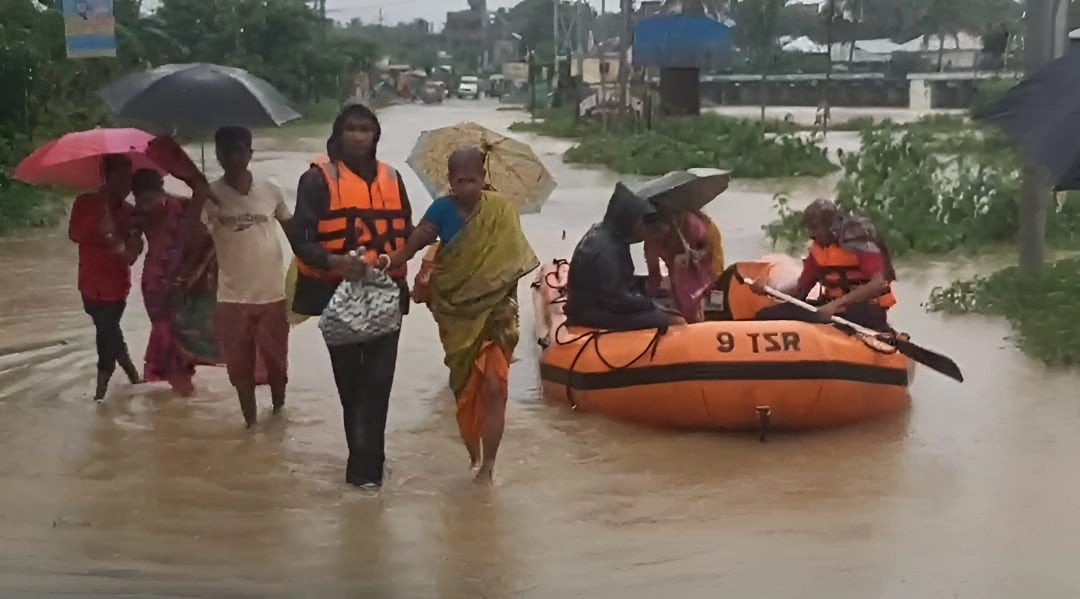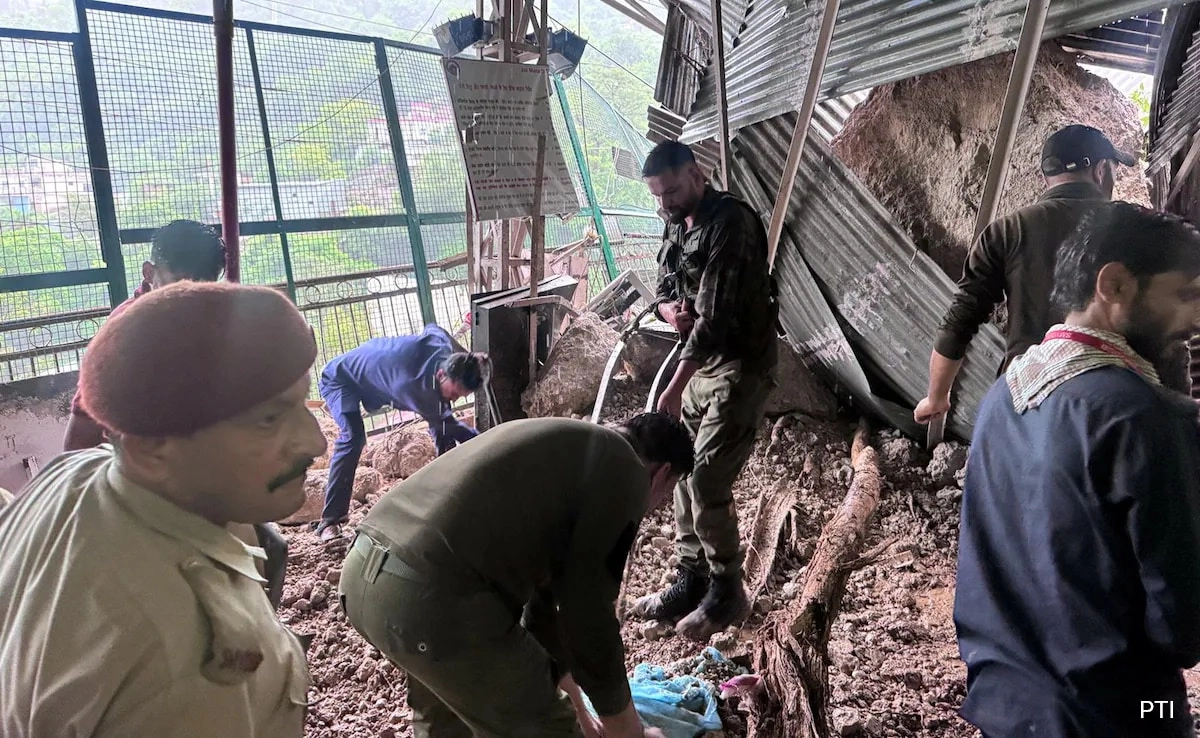In Tripura, a devastating flash flood has led to the displacement of over 250 families, significantly impacting local communities and disrupting daily life. The sudden and intense rainfall caused water levels in rivers and streams to rise rapidly, inundating homes and agricultural lands. Residents found themselves caught off guard, with many having to evacuate their homes and seek temporary refuge in relief camps. The situation has been particularly dire for families in low-lying areas, where the floodwaters have rendered homes uninhabitable.
In response to the crisis, local authorities have initiated relief operations, providing essentials such as food, clean water, and medical assistance to those affected. However, the scale of the disaster poses significant challenges for relief efforts, as access to some areas remains restricted due to the high water levels. The government is working alongside various non-governmental organizations to ensure that displaced families receive the support they need during this challenging time.
The education sector has also felt the impact of the floods, with numerous schools being forced to shut down temporarily. This disruption poses a significant setback for students, who are already facing challenges in their academic lives. Local education officials are assessing the situation to determine when it will be safe to reopen schools and ensure that students can resume their studies as soon as possible. The flash floods underscore the vulnerability of many communities in Tripura to extreme weather events, highlighting the urgent need for improved infrastructure and disaster preparedness measures.
As the situation develops, local authorities remain focused on providing immediate assistance to those affected while also planning for long-term recovery efforts. The resilience of the community will be tested in the coming weeks, but with collaborative efforts from various stakeholders, there is hope for a swift recovery. However, the recurring nature of such natural disasters raises concerns about climate change and its implications for the region’s future, emphasizing the importance of proactive measures to mitigate the risks associated with extreme weather.




